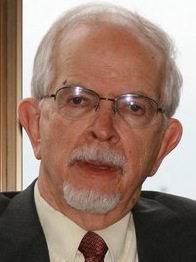I found him on St. Thomas Island, where he was attending the funeral of an old friend, Henry Kimmelman, his campaign finance director for McGovern's 1972 presidential race.
We set aside a longer period to talk the next day when he would be back at his winter home in St. Augustine, Florida. He spends the rest of the year in Mitchell, South Dakota, across from the new George and Eleanor McGovern Library on the campus of Dakota Wesleyan.
McGovern abruptly left elective politics in 1980, shoved aside, with four other liberal Democratic US senators who lost their seats in the political tsunami powered by Ronald Reagan's defeat of Jimmy Carter: Frank Church (Idaho), Gaylord Nelson (Wisconsin), Birch Bayh (Indiana), and John Culver (Iowa).
I first met McGovern when we campaigned together in Illinois for his 1972 Democratic nomination for president. I was running a losing race for Congress, and a successful one as a McGovern delegate.
In the Miami nominating convention prolonged by a needless ABM (Anybody But McGovern) last-minute-effort to nominate Hubert Humphrey, McGovern finally won the nomination. The old guard does not like change, as Barack Obama almost found out in 2008.
McGovern lost the general election to Richard Nixon. Eighteen months later, Nixon, facing impeachment over the Watergate matter, resigned in disgrace.
Two months after the election, I interviewed McGovern at his home in Washington. In its January 31, 1973 issue, the Christian Century magazine published that interview, Politics and Morality: A Post-election Interview with George McGovern.
At the close of the interview, I asked McGovern what he would have done in Vietnam had he won the election. His answer:
"I would have ordered an end to all military operations in Indochina within minutes after I was sworn in as President. Then I would have announced that our forces were being withdrawn systematically, on the condition that our prisoners would be released. I would also have terminated any further military aid to General Thieu...
"I think it is conceivable that, depending on what my relationship to Nixon would have been, the war might have been terminated even before the inauguration. I would have requested him to join me in an effort to bring the war to an end. It is possible that without an electoral mandate behind him he would have been in the mood to accept that."
With Nixon, and Gerald Ford as presidents, the war lasted three more years. American Republican politics have not been the same since.
Thirty-seven years after McGovern's defeat, the most passionately supported Republican presidential candidate for 2012, is Sarah Palin.
This month it is impossible not to encounter Palin. She is on a book tour, delighting her right-wing followers. What sort of a president might she be? She gave a hint of her foreign policy credentials in an interview with Barbara Walters.
Palin was asked about Israel's 900 additional housing units now under construction in Gilo, a sprawling, ugly, massive Israeli settlement that butts up against the "little town of Bethlehem" where the Christ Child was born, in case former Governor Palin and her acolytes, have forgotten.
Her response:
"I disagree with the Obama administration on [the settlements]. I believe that the Jewish settlements should be allowed to be expanded upon, because that population of Israel is, is going to grow.
(Note: You can view every article as one long page if you sign up as an Advocate Member, or higher).





